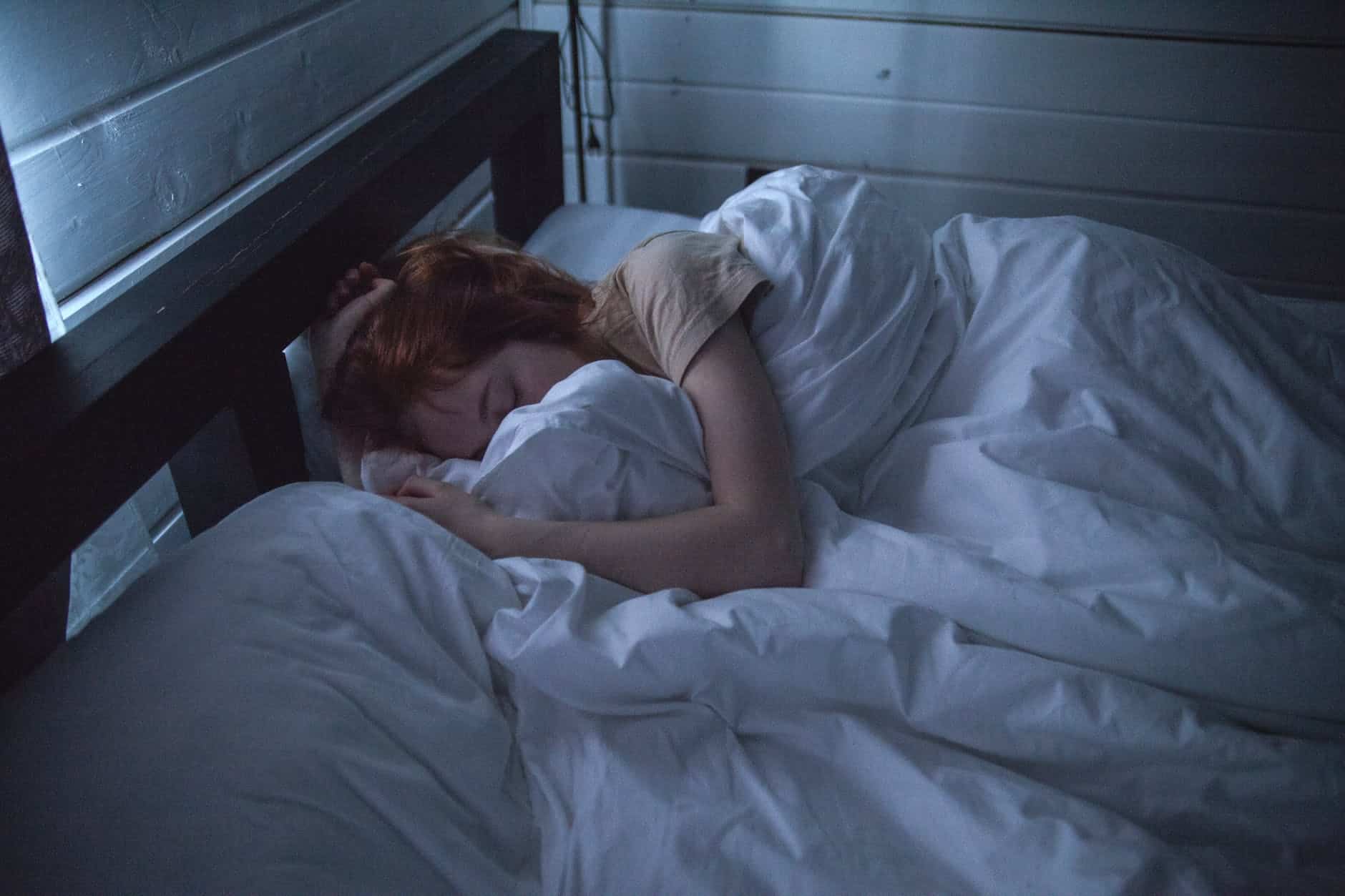Are you tired of tossing and turning at night, feeling like your body is on fire? If so, you’re not alone. Many females experience excessive body heat during the night, leaving them uncomfortable and unable to get a good night’s sleep. But what exactly causes this sudden surge of heat? In this article, we will delve into the various factors that contribute to excessive body heat in females at night. From hormonal imbalances to lifestyle habits, we will explore the underlying causes and provide practical solutions to help you cool down and get the restful sleep you deserve. So, if you’re ready to say goodbye to night sweats and hello to a more comfortable night’s sleep, keep reading to discover the secrets behind the heat.
Common causes of excessive body heat in females
Excessive body heat at night can be caused by a variety of factors. One common cause is hormonal fluctuations. Throughout a woman’s life, her hormones go through significant changes, which can affect body temperature regulation. During the menstrual cycle, for example, estrogen levels rise and fall, which can lead to hot flashes and night sweats. Additionally, hormonal imbalances, such as those experienced during perimenopause and menopause, can also contribute to excessive body heat. These hormonal shifts can disrupt the body’s natural cooling mechanisms, leading to discomfort and interrupted sleep.
Another factor that can contribute to excessive body heat in females is the use of certain medications. Some medications, such as antidepressants and hormone replacement therapy, can cause an increase in body temperature as a side effect. It’s important to talk to your doctor if you suspect that your medication may be contributing to your excessive body heat, as they may be able to adjust your dosage or prescribe an alternative medication that doesn’t have this side effect.
Lastly, stress and anxiety can also play a role in excessive body heat. When we’re stressed or anxious, our bodies go into a “fight or flight” response, which can cause an increase in body temperature. This can be especially problematic at night when we’re trying to relax and sleep. Finding healthy ways to manage stress, such as practicing relaxation techniques or engaging in regular exercise, can help reduce excessive body heat and improve sleep quality.
Hormonal factors contributing to excessive body heat
Hormones play a crucial role in regulating body temperature, and any imbalances can lead to excessive heat. Estrogen, in particular, has a significant impact on body temperature regulation. As estrogen levels fluctuate, particularly during the menstrual cycle, it can lead to hot flashes and night sweats. These sudden surges of heat can be accompanied by increased heart rate, perspiration, and feelings of anxiety. While these symptoms are normal during certain stages of a woman’s life, they can still be uncomfortable and disruptive to sleep.
During perimenopause and menopause, when estrogen levels decline, hot flashes and night sweats become even more common. The hypothalamus, which is responsible for regulating body temperature, becomes more sensitive to even slight changes in hormone levels. As a result, women may experience intense heat and sweating, often followed by a chill. These hormonal changes can disrupt sleep patterns and lead to fatigue and irritability.
It’s important to note that hormonal imbalances can also occur at other times in a woman’s life, such as during pregnancy or as a result of certain medical conditions. If you suspect that hormonal imbalances are contributing to your excessive body heat, it’s essential to consult with a healthcare professional who can help identify the underlying cause and recommend appropriate treatment options.
Menopause and its impact on body heat regulation
Menopause is a natural stage in a woman’s life when her menstrual periods cease, and she can no longer conceive. While it is a normal part of aging, menopause can bring about a range of symptoms, including excessive body heat. During menopause, the ovaries produce less estrogen and progesterone, leading to hormonal imbalances that can disrupt the body’s temperature regulation.
Hot flashes, one of the most common symptoms of menopause, are sudden feelings of intense heat that can radiate throughout the body. These hot flashes can last for a few seconds to several minutes and are often accompanied by flushing, sweating, and a rapid heartbeat. Hot flashes can occur during the day or at night, interrupting sleep and leaving women feeling exhausted.
Night sweats are another common symptom of menopause. These are similar to hot flashes, but they occur specifically during sleep. Many women wake up drenched in sweat, often needing to change their pajamas or bedding. Night sweats can be particularly disruptive to sleep, leading to daytime fatigue and irritability.
While menopause-related body heat symptoms can be challenging to manage, there are strategies that can help. Dressing in layers, using breathable bedding, and maintaining a cool bedroom environment can all contribute to a more comfortable sleep. Additionally, avoiding triggers such as spicy foods, caffeine, and alcohol can help reduce the frequency and intensity of hot flashes and night sweats.

Lifestyle factors that may increase body heat at night
In addition to hormonal factors, there are several lifestyle habits that can contribute to excessive body heat at night. One common culprit is the use of electronic devices before bed. The blue light emitted by smartphones, tablets, and computers can interfere with the body’s production of melatonin, a hormone that helps regulate sleep. This disruption in the sleep-wake cycle can lead to increased body temperature and difficulty falling asleep.
Another lifestyle factor that can increase body heat is excessive caffeine consumption. Caffeine is a stimulant that can raise heart rate and body temperature, making it more difficult to cool down and fall asleep. It’s best to limit caffeine intake, especially in the evening, to promote better sleep quality.
Additionally, engaging in intense physical activity close to bedtime can also raise body temperature and make it harder to fall asleep. Exercise is important for overall health, but it’s best to schedule workouts earlier in the day to allow the body time to cool down before bedtime.
Lastly, certain clothing materials and bedding fabrics can trap heat and contribute to excessive body heat. Synthetic materials, such as polyester, do not allow for proper airflow and can lead to increased sweating and discomfort. Opting for natural fibers like cotton and linen can help regulate body temperature and promote better sleep.
Medical conditions associated with excessive body heat in females
While hormonal imbalances and lifestyle factors are common causes of excessive body heat in females, there are also several medical conditions that can contribute to this issue. One such condition is hyperthyroidism, which occurs when the thyroid gland produces an excess amount of thyroid hormone. This can lead to an increased metabolic rate, which in turn raises body temperature.
Polycystic ovary syndrome (PCOS) is another medical condition that can cause excessive body heat. PCOS is a hormonal disorder that affects women of reproductive age, leading to irregular periods, ovarian cysts, and increased androgen levels. The hormonal imbalances associated with PCOS can disrupt the body’s temperature regulation, leading to hot flashes and night sweats.
Certain infections, such as urinary tract infections and respiratory infections, can also cause a rise in body temperature. These infections trigger an immune response, which can raise body temperature as a way to fight off the invading pathogens. If you suspect that an infection may be causing your excessive body heat, it’s important to seek medical attention for proper diagnosis and treatment.
Tips for managing excessive body heat at night
Excessive body heat at night can be incredibly uncomfortable, but there are several strategies that can help manage this issue and improve sleep quality. Here are some tips to help you cool down and get a restful night’s sleep:
- Keep your bedroom cool: Set your thermostat to a lower temperature or use a fan to circulate cool air throughout the room. Creating a cool and comfortable sleep environment can make a significant difference in managing excessive body heat.
- Use breathable bedding: Opt for bedding made from natural fibers like cotton or bamboo, which allow for better airflow and heat regulation. Avoid synthetic materials that can trap heat and contribute to sweating.
- Dress in lightweight and breathable clothing: Choose loose-fitting clothing made from natural fibers that allow your skin to breathe. Avoid tight or restrictive clothing that can hinder heat dissipation.
- Practice relaxation techniques: Stress and anxiety can contribute to increased body heat at night. Engaging in relaxation techniques such as deep breathing exercises, meditation, or yoga can help calm the mind and promote better sleep.
- Avoid spicy foods and alcohol: Spicy foods and alcohol can raise body temperature and trigger hot flashes. Limiting or avoiding these substances, especially in the evening, can help reduce excessive body heat.
- Stay hydrated: Drinking plenty of water throughout the day can help regulate body temperature and prevent dehydration, which can worsen hot flashes and night sweats.
- Consider natural remedies: Certain herbs and supplements, such as black cohosh and evening primrose oil, have been found to help manage menopause symptoms, including excessive body heat. However, it’s important to consult with a healthcare professional before starting any new supplements.
Remember, everyone’s body is different, and what works for one person may not work for another. It may take some trial and error to find the strategies that work best for you. If you continue to experience excessive body heat at night despite implementing these tips, it’s important to consult with a healthcare professional for further evaluation.
When to seek medical help for excessive body heat
While occasional episodes of excessive body heat may not be cause for concern, there are times when it’s important to seek medical help. If you experience any of the following symptoms along with your excessive body heat, it’s essential to consult with a healthcare professional:
- Unexplained weight loss or gain
- Irregular or absent menstrual periods
- Mood swings or changes in mental health
- Fatigue or weakness
- Changes in appetite or digestion
- Changes in skin texture or appearance
- Palpitations or rapid heartbeat
- Difficulty sleeping or staying asleep.
These symptoms could indicate an underlying medical condition that requires further evaluation and treatment. A healthcare professional will be able to assess your symptoms, perform any necessary tests, and provide appropriate recommendations.
Conclusion and final thoughts
Excessive body heat in females at night can be disruptive to sleep and overall well-being. Understanding the various causes, such as hormonal imbalances, lifestyle factors, and medical conditions, can help identify the underlying issues and guide treatment strategies. By implementing lifestyle changes, exploring natural remedies, and seeking medical help when necessary, it’s possible to manage excessive body heat and improve sleep quality. Remember, finding what works best for you may require some trial and error, so be patient and persistent in your efforts. With the right strategies in place, you can say goodbye to night sweats and hello to a more comfortable and restful night’s sleep.

